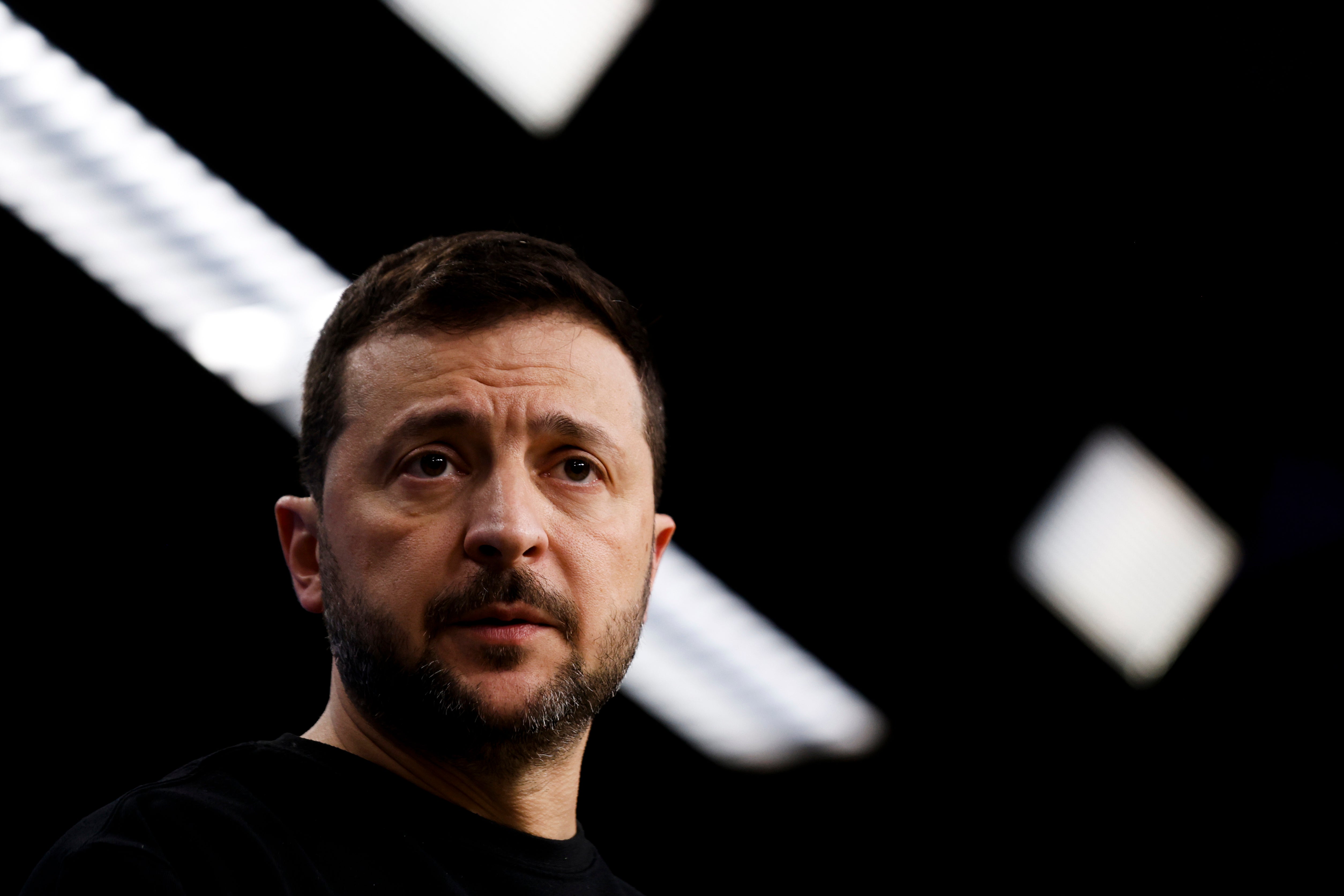Mark Almond: Zelensky is playing a clever game with America by talk of ceasefire
Getting in well with Trump could buy Ukraine, and Zelensky himself, time to reconstruct its economy while hoping for things to go wrong for Putin at home or abroad, writes Mark Almond


After Putin’s brutal invasion of Ukraine, Western leaders repeated constantly that they would stand behind Kyiv “as long as it takes”, first as Ukraine struck back, then as Russia counter-attacked.
But the costly bloodletting and Europe’s inability to sustain Ukraine’s munitions and monetary needs was skinning those proud commitments to the bone even before the spectre of Donald Trump’s return to the White House became a nightmarish reality. But Ukraine’s Volodymyr Zelensky wasn’t a tap dancer for nothing. His footwork is far more deft than his European partners’. The Russians have already found that to their cost.
Zelensky’s warm words about Donald Trump are not just positioning for the new president. Trump’s talk of “peace through strength” offers the Ukrainian president a chance to profile himself as the pilot who steered Ukraine, or most of it, to safety under an American umbrella. Getting in well with Trump could buy Ukraine, and Zelensky himself, time to reconstruct its economy while hoping for things to go wrong for Putin at home or abroad.
Trump wants to brandish a peace deal on day one of his presidency, and Zelensky can try to use that impatience to get Ukraine a better deal than Joe Biden’s dogged backing for a war of attrition. Kyiv’s law banning talks with a Putin-run Kremlin will have to go out of the window. But, as his Sky News interview showed, Zelensky hopes to lock in the Americans any which way by guaranteeing a peace deal, even one which leaves Crimea and the Donbas under Russian control.
Nato would be the best guarantee for the security of “free” Ukraine against a renewed Russian attack. That would be different from Ukraine’s Nato membership, which Putin invaded to kill off, but still better than being a “neutral” buffer zone. The Kremlin would oppose even that, but it might accept an “international force” to police the ceasefire line, creating a tripwire against a surprise renewed war.

Even those dead against “selling out to Russia” in any way should see that enshrining a dogmatic refusal to use diplomacy did more harm to Ukraine’s cause than Putin. Ukrainian ultras fear a slippery slope to appeasement. Putin too should recognise that getting into peace talks with Kyiv directly or through Donald Trump’s mediation could arouse hopes for peace among Russians. Many who have not yet openly opposed his war and who might accept his peace would be soured if the Kremlin, not Kyiv, killed a deal.
Each side fears that the other will use a ceasefire or even a formal peace treaty as simply a tactic to gain time to re-arm for renewed fighting. That after all was the lesson of the Minsk Process from 2015 to 2022. Angela Merkel has told a host of interviewers about her new memoirs that her Germany and its Western allies saw that deal as a way to buy time for Kyiv to fight again better prepared. Who doubts that Putin saw the Minsk deal as a way to calm rocky relations with the West, not least to preserve his lucrative energy deals with Germany?
Strange as it sounds, Putin might want a ceasefire so that the normal functioning of Ukrainian democracy can restart. Last year, President Zelensky suspended presidential elections for the duration of the war citing Russia’s occupation of Crimea and southeast Ukraine as well as the general insecurity created by Russian air raids and the displacement of refugees.
With a halt to fighting, Zelensky could be pressured to hold elections, at least in the free regions of Ukraine and among the millions of refugees in the West. That might well confirm his democratic legitimacy and strengthen his hand in talks with the Kremlin, but it could expose splits in Ukrainian society.
Since 2019, former president Petro Poroshenko has positioned himself as the voice of the patriotic front line, rejecting any concessions to the Russian aggressor. That lost him that year’s election badly, but 1,000 days of slaughter have created a bigger constituency for fighting on til victory however unlikely that may be. On the other hand, many who voted in such overwhelming numbers for Zelensky as the “peace” candidate five years ago may still think better a bad peace with Russia that staunches the flow of Ukrainian blood.
As the ceasefire in Lebanon followed by the surge in fighting in neighbouring Syria showed, peace in one place can mean just the relocation of forces to a next-door front. Nearby Georgia and neighbouring Belarus are bubbling up for trouble. In the West, we got used to peace as the norm for decades. Conflicts involving our professional forces took place far away from our borders. Since 2022, we have been adjusting – slowly and always glancing back to the land of lost content – to being perched on the edge of a volcano. There is a chance that the Ukrainian volcano will go dormant for a while, even if lava flows elsewhere.
Join our commenting forum
Join thought-provoking conversations, follow other Independent readers and see their replies
Comments
Bookmark popover
Removed from bookmarks